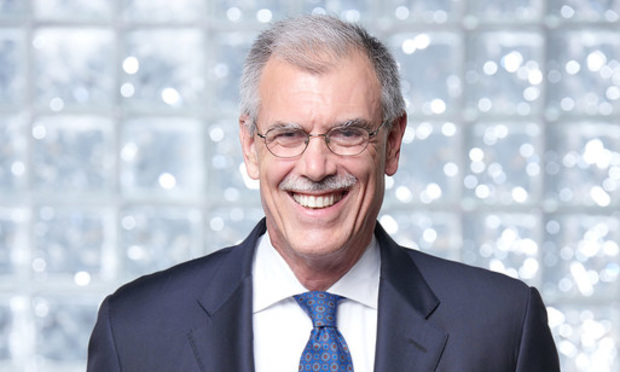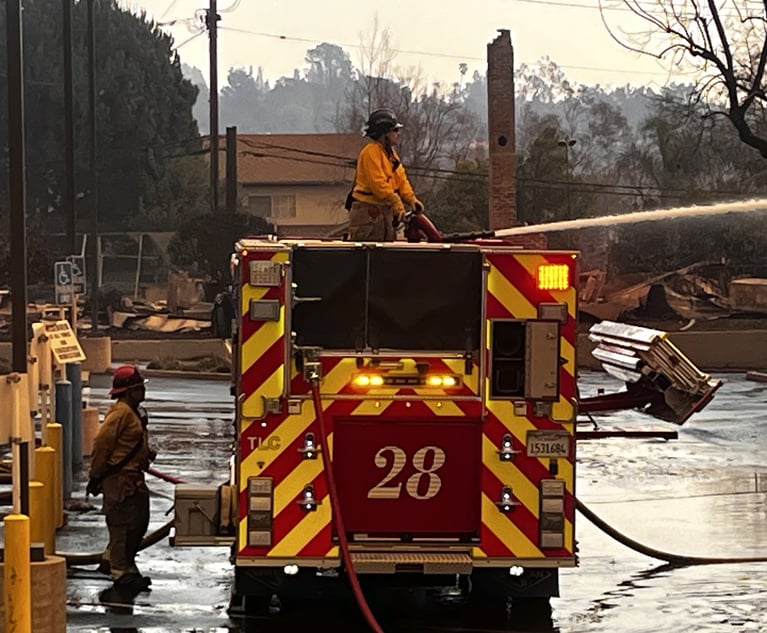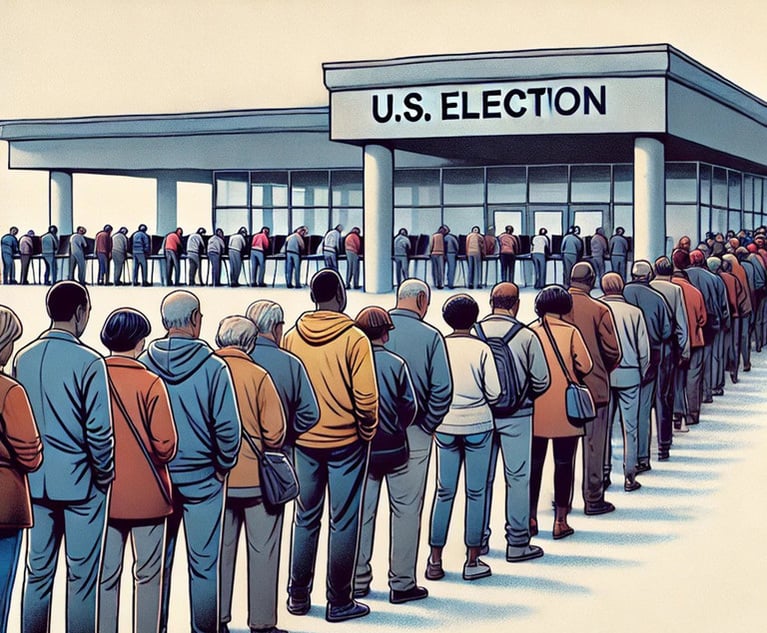Overturning a Death Row Conviction
"In any death penalty case to the Supreme Court, there is a very strong presumption of deference to state court judgments that the death row inmate has to overcome." — Don Verrilli
April 30, 2018 at 02:00 AM
3 minute read

This article is part of National Law Journal's 2018 Pro Bono Hot List recognition package that celebrates law firms that do well by doing good. See the other stories here.
Munger, Tolles & Olson attorney Don Verrilli won a U.S. Supreme Court victory, overturning the conviction of James McWilliams, an Alabama death row inmate.
McWilliams was convicted of capital murder in 1986 and subsequently sentenced to death. Verrilli served as co-counsel with the Southern Center for Human Rights. They argued that McWilliams had been sentenced to death without the expert mental health assistance required by the Supreme Court's 1985 decision in Ake v. Oklahoma.
“In any death penalty case to the Supreme Court, there is a very strong presumption of deference to state court judgments that the death row inmate has to overcome,” Verrilli said. “While there was a clearly set right from Ake, what the scope of that right is and how it is applied was unclear, so we had the lack of clarity combined with deference to state court judgments.”
The Supreme Court's decision to hear the case marked a turning point, Verrilli said. “The court takes only a tiny fraction of the cases presented to it,” Verrilli explained. “If they weren't interested in your defendant, they would just not hear it.”
In Ake, the Supreme Court held that “when a defendant has made a preliminary showing that his sanity at the time of the offense is likely to be a significant factor at trial, the Constitution requires that a state provide access to a psychiatrist's assistance on this issue if the defendant cannot otherwise afford one.”
In McWilliams, Verrilli said “the offer of expertise was a doctor who was an employee of the state, not an expert that's on your side.”
On June 19, 2017, in a 5-4 decision, the high court ruled in favor of McWilliams. In the majority opinion written by Justice Stephen Breyer, the court held that Alabama's mental health assistance fell “dramatically short of what Ake requires.”
Verrilli said McWilliams' case “has the potential to be quite significant as it reinforces and clarifies the scope of the right that capital defendants have to the experts they need to be able to make their case.”
Stephen Bright, Harvey Karp Visiting Lecturer in Law at the Yale Law School, co-counseled the case. “Don and Michael DeSanctis of the D.C. office and Joshua Meltzer of the San Francisco office of the firm co-counseled the case with me and two other lawyers from the Southern Center for Human Rights,” Bright said. “Their insights, analysis and experience were indispensable in writing the briefs, preparing for oral argument, and bringing about the favorable decision. The ability to call any of them and discuss aspects of the case was invaluable.”
This content has been archived. It is available through our partners, LexisNexis® and Bloomberg Law.
To view this content, please continue to their sites.
Not a Lexis Subscriber?
Subscribe Now
Not a Bloomberg Law Subscriber?
Subscribe Now
NOT FOR REPRINT
© 2025 ALM Global, LLC, All Rights Reserved. Request academic re-use from www.copyright.com. All other uses, submit a request to [email protected]. For more information visit Asset & Logo Licensing.
You Might Like
View All
LA-Area Law Firms Offer Support as Region Reckons With Raging Wildfires

Paladin Launches Pro Bono Election Protection Portal for Attorneys

'Graveyard Desecration'?: Md. Supreme Court Gives Descendants of Enslaved Persons Partial Victory in Property Row
5 minute read
Trending Stories
- 1No Two Wildfires Alike: Lawyers Take Different Legal Strategies in California
- 2Poop-Themed Dog Toy OK as Parody, but Still Tarnished Jack Daniel’s Brand, Court Says
- 3Meet the New President of NY's Association of Trial Court Jurists
- 4Lawyers' Phones Are Ringing: What Should Employers Do If ICE Raids Their Business?
- 5Freshfields Hires Ex-SEC Corporate Finance Director in Silicon Valley
Who Got The Work
J. Brugh Lower of Gibbons has entered an appearance for industrial equipment supplier Devco Corporation in a pending trademark infringement lawsuit. The suit, accusing the defendant of selling knock-off Graco products, was filed Dec. 18 in New Jersey District Court by Rivkin Radler on behalf of Graco Inc. and Graco Minnesota. The case, assigned to U.S. District Judge Zahid N. Quraishi, is 3:24-cv-11294, Graco Inc. et al v. Devco Corporation.
Who Got The Work
Rebecca Maller-Stein and Kent A. Yalowitz of Arnold & Porter Kaye Scholer have entered their appearances for Hanaco Venture Capital and its executives, Lior Prosor and David Frankel, in a pending securities lawsuit. The action, filed on Dec. 24 in New York Southern District Court by Zell, Aron & Co. on behalf of Goldeneye Advisors, accuses the defendants of negligently and fraudulently managing the plaintiff's $1 million investment. The case, assigned to U.S. District Judge Vernon S. Broderick, is 1:24-cv-09918, Goldeneye Advisors, LLC v. Hanaco Venture Capital, Ltd. et al.
Who Got The Work
Attorneys from A&O Shearman has stepped in as defense counsel for Toronto-Dominion Bank and other defendants in a pending securities class action. The suit, filed Dec. 11 in New York Southern District Court by Bleichmar Fonti & Auld, accuses the defendants of concealing the bank's 'pervasive' deficiencies in regards to its compliance with the Bank Secrecy Act and the quality of its anti-money laundering controls. The case, assigned to U.S. District Judge Arun Subramanian, is 1:24-cv-09445, Gonzalez v. The Toronto-Dominion Bank et al.
Who Got The Work
Crown Castle International, a Pennsylvania company providing shared communications infrastructure, has turned to Luke D. Wolf of Gordon Rees Scully Mansukhani to fend off a pending breach-of-contract lawsuit. The court action, filed Nov. 25 in Michigan Eastern District Court by Hooper Hathaway PC on behalf of The Town Residences LLC, accuses Crown Castle of failing to transfer approximately $30,000 in utility payments from T-Mobile in breach of a roof-top lease and assignment agreement. The case, assigned to U.S. District Judge Susan K. Declercq, is 2:24-cv-13131, The Town Residences LLC v. T-Mobile US, Inc. et al.
Who Got The Work
Wilfred P. Coronato and Daniel M. Schwartz of McCarter & English have stepped in as defense counsel to Electrolux Home Products Inc. in a pending product liability lawsuit. The court action, filed Nov. 26 in New York Eastern District Court by Poulos Lopiccolo PC and Nagel Rice LLP on behalf of David Stern, alleges that the defendant's refrigerators’ drawers and shelving repeatedly break and fall apart within months after purchase. The case, assigned to U.S. District Judge Joan M. Azrack, is 2:24-cv-08204, Stern v. Electrolux Home Products, Inc.
Featured Firms
Law Offices of Gary Martin Hays & Associates, P.C.
(470) 294-1674
Law Offices of Mark E. Salomone
(857) 444-6468
Smith & Hassler
(713) 739-1250








